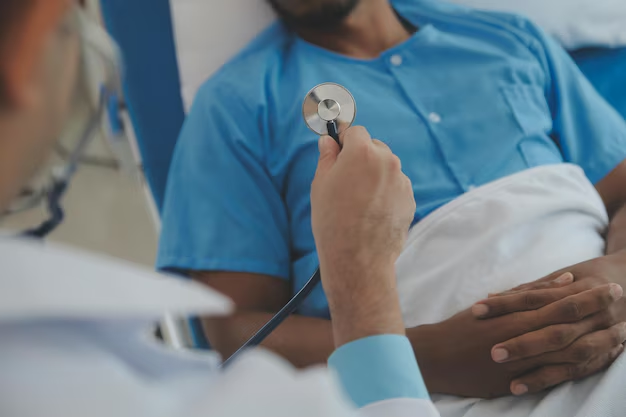Exploring the Treatability of Lymphoma: What You Should Know
When faced with a lymphoma diagnosis, the immediate question on anyone's mind is often: Is lymphoma treatable? This concern is natural, as understanding the potential paths to recovery is crucial for patients and their families. Fortunately, lymphoma is among the most treatable forms of cancer, with numerous options available depending on the type and stage of the disease.
Understanding Lymphoma: A Brief Overview
Lymphoma is a type of cancer that originates in the lymphatic system, the body's primary mechanism for combating infections and maintaining fluid balance. This system includes lymph nodes, spleen, thymus gland, and bone marrow. Lymphoma primarily affects a type of white blood cell known as lymphocytes, which play a crucial role in the immune response.
Types of Lymphoma
There are two main categories of lymphoma:
Hodgkin Lymphoma (HL): Characterized by the presence of Reed-Sternberg cells, HL is generally considered more curable than its counterpart.
Non-Hodgkin Lymphoma (NHL): More common than HL, NHL encompasses a diverse group of subtypes, each differing in growth pattern and treatment response.
Treatment Options for Lymphoma
The success of lymphoma treatment depends on various factors, including the specific type, stage, and the patient’s overall health. Here’s a closer look at common lymphoma treatments:
Chemotherapy
Chemotherapy is the primary treatment for many types of lymphoma. It uses powerful drugs to kill rapidly dividing cancer cells. Depending on the specific case, chemotherapy might be administered alone or in combination with other treatments.
Key Points About Chemotherapy:
- Often used as a frontline treatment.
- Administered in cycles over several weeks or months.
- Side effects vary but can include fatigue, nausea, and hair loss.
Radiation Therapy
Radiation therapy involves using high-energy rays to target and kill cancer cells. It is often employed alongside chemotherapy and is particularly effective in treating localized lymphoma.
Important Considerations:
- Typically used for HL or early-stage NHL.
- Can be focused on specific areas to minimize side effects.
- May cause skin irritation and fatigue in the short term.
Immunotherapy and Targeted Therapies
In recent years, immunotherapy and targeted therapies have transformed lymphoma treatment, offering personalized approaches that improve outcomes.
Immunotherapy:
- Boosts the body's natural defenses to fight cancer.
- May include monoclonal antibodies that precisely target lymphoma cells.
Targeted Therapy:
- Focuses on specific molecules involved in cancer cell growth.
- Typically has fewer side effects compared to chemotherapy.
Stem Cell Transplantation
Stem cell transplantation, sometimes referred to as a bone marrow transplant, is considered for aggressive or relapsed lymphomas. This procedure involves replacing damaged bone marrow with healthy stem cells, potentially leading to a cure.
Things to Know:
- Can involve autologous (using the patient's cells) or allogeneic (donor cells) transplants.
- Requires intensive preparation, including high-dose chemotherapy.
- Potentially risky, with a longer recovery period.
Factors Influencing the Success of Treatment
The effectiveness of lymphoma treatment can vary significantly based on several factors:
Lymphoma Type and Stage
- Indolent vs. Aggressive Lymphomas: Indolent lymphomas grow slowly and may not require immediate treatment, while aggressive forms necessitate urgent intervention.
- Stage of Disease: Early-stage lymphomas have a better prognosis compared to advanced stages, which might require more intensive treatment.
Patient Health and Characteristics
- The patient’s age and general health can affect treatment choices and outcomes. Younger patients tend to tolerate aggressive treatments better.
- Genetic factors and specific lymphoma markers (such as specific proteins on the cell surface) are also considered in designing treatment plans.
Living With Lymphoma: What Patients Can Do
Beyond medical interventions, patients can take proactive steps to improve their quality of life and enhance treatment effectiveness.
Lifestyle Adjustments
- Healthy Diet and Exercise: Maintaining a balanced diet can help manage treatment side effects and boost energy levels. Regular, moderate exercise can alleviate fatigue and improve mood.
- Stress Management: Techniques such as meditation, deep breathing, and yoga can reduce stress, which may help enhance the immune response.
Support Systems
- Join Support Groups: Connecting with others facing similar challenges can provide emotional support and valuable insights.
- Communicate Openly: Maintaining open lines of communication with healthcare providers ensures better management of symptoms and side effects.
Follow-Up Care
Regular follow-up appointments are crucial for monitoring potential recurrences and managing long-term side effects. Staying informed and engaged in one's own care can lead to more empowered health decisions.
Exploring New Horizons: Advances in Lymphoma Research
The landscape of lymphoma treatment is continuously evolving, with new therapies in clinical trials offering hope for better outcomes. Research into CAR T-cell therapy and other novel approaches are promising areas that could redefine the future of lymphoma care.
- CAR T-cell Therapy: This involves modifying a patient’s T-cells to better recognize and fight cancer cells, showing promise, particularly in certain aggressive lymphomas.
Moving Forward: The Road to Recovery
Recognizing that lymphoma is treatable is key in empowering patients and their families as they navigate the complexities of cancer treatment. With advancements in medical science, many people diagnosed with lymphoma go on to lead fulfilling lives post-treatment.
Ultimately, partnering with experienced healthcare professionals and staying informed about the latest treatment options provides a hopeful path for those facing lymphoma.
Key Takeaways 🌟
- Lymphoma is Treatable: With a range of treatment options such as chemotherapy, radiation, and newer therapies.
- Stages and Types Matter: Success depends on lymphoma type and stage at diagnosis.
- Innovative Therapies: Immunotherapy and stem cell transplants offer personalized treatment paths.
- Support and Lifestyle: Diet, exercise, and support groups enhance treatment effectiveness.
- Ongoing Research: Clinical trials offer hope with cutting-edge treatments.
Understanding these elements empowers patients and their families, providing clarity and confidence in the journey towards recovery and improved health.

